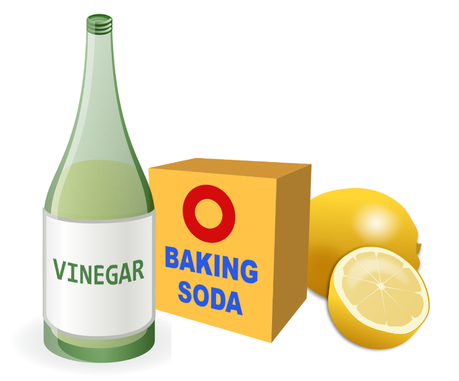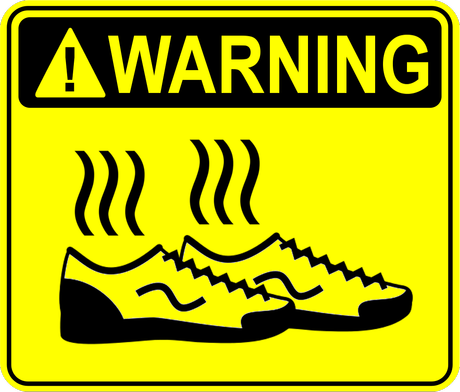Did you know that Madeline Albrecht from Cincinnati, Ohio holds the world record for the most feet sniffed? Madeline worked for 15 years at a testing center for Dr. Scholl's and it was part of her job to sniff feet and armpits. Her record: 5,600 feet!
That may not sound like a dream job, but the fact that she was paid to do it for 15 years shows just how serious of a problem foot odor can be. How do feet and shoes get so smelly, anyway?
- Each foot contains a whopping 250,000 sweat glands.
- Shoes.
Unlike faces and arms, most feet are covered in shoes all day. When that happens, feet are not ventilated and the contained sweat and warmth become a breeding ground for bacteria—very smelly bacteria. This bacteria lives on your feet, in your socks and all over your favorite shoes.
Have you ever noticed that some people's feet have almost no odor while others could kill a canary? The reason is simply that some people sweat more and provide conditions that encourage for bacteria to breed (warm and humid). Whatever the case, foot odor is a common nuisance in most households.
Natural Solutions for Foot and Shoe Odor

So what can you do about smelly feet and smelly shoes? This is a popular question for our shoemakers, and we have a few natural solutions. The great news is that you can combine these for maximum aroma control:
- Keep Feet Clean: Washing daily with soap will do a lot to rid your feet of bacteria and their odor. And soaking your feet in a hot epsom salt bath will not only kill bacteria, but will also help relax your muscles.
- Stay Dry: Make sure your feet are dry before putting on socks or shoes, especially if you just took a shower. Water stuck between toes is a common culprit.
- Choose Well-Ventilated Shoes: Natural leather is much more breathable than plastic, rubber or "pleather." Shoes with perforations or materials designed to be breathable are even better (such as—just off the tops of our heads—a Dash LITE or a Moc3 lined with Breathe-O-Prene).
- Give Your Shoes a Break: If you let your shoes rest for 24 hours after wearing them, they will air out and much of the festering bacteria will die.
- Wicking Socks: Not everyone is a fan of wearing socks with their shoes, but socks made from wicking fabric will push away sweat so it can evaporate—as long as your shoes are well-ventilated. Good wicking materials are merino wool, olefin or microfiber blends (Swiftwicks Socks are our favorites). Remember to change your socks regularly.
- Baking Soda: Sprinkling a couple teaspoons of baking soda into your shoes overnight will help reduce the smell. Using deodorant with a baking soda base and applying it to your feet and/or shoes can also be very effective.
- Vinegar Spray: Mix equal parts water and vinegar, spray it into your shoes to kill bacteria. Let them dry for at least 30 minutes before wearing them. Note: this could discolor some shoe dye, so be careful not to spray the outside.
- Mask the Smell: Although it does more to fight the symptoms than solve the problem, sometimes adding a more pleasant odor will be enough. You can try using citrus peel, dryer sheets, tea bags, lavender or other herbs. Just place them in your shoes, especially around the ball and toe areas, and let them sit overnight.
There you have it, everything you never wanted to know about foot odor. If you have any other natural solutions, we'd love to hear them!


